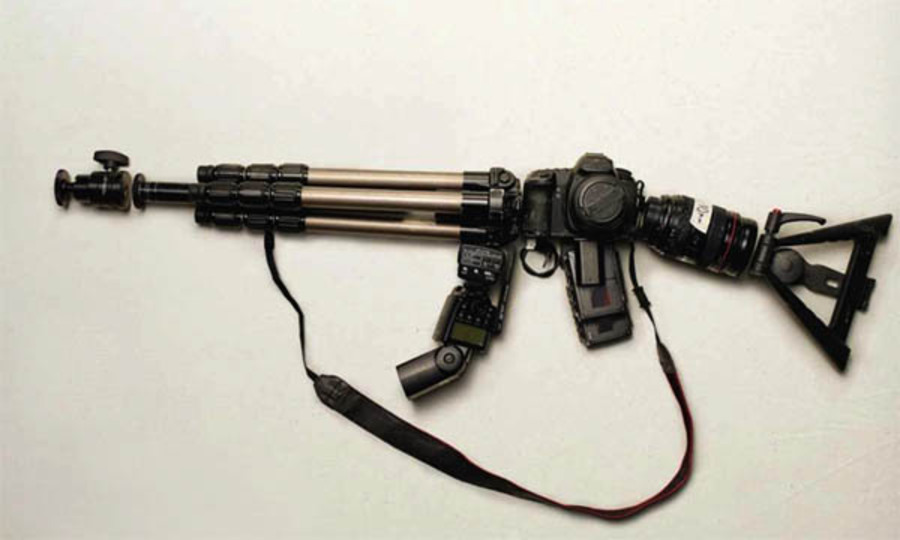Conferences and debates
Index / Activities / Conferences and debates / Islamic State: apocalyptic propaganda and paper caliphate
Islamic State: apocalyptic propaganda and paper caliphate
January 11, 20167:00 p.m.
MADRID
Casa Árabe Auditorium (at Calle Alcalá, 62).
7:00 p.m.
Free entrance until the event’s capacity is reached.
In Spanish.
A researcher from the George Washington University School of Media and Public Affairs will be giving this conference, follwed by a discussion with a Brazilian investigative journalist.
The self-proclaimed Islamic State or Daesh is the first terrorist group in history to use digital communication as a decisive part of its global strategy. The main objective: to conquer the hearts and minds of frustrated youths around the world through a sophisticated audiovisual strategy aimed at transforming terrorism into a popular, imitable, fashionable cultural product.
A detailed analysis of this communication machinery and its apocalyptic message makes it possible to get a better understanding of some of the essentials of this phenomenon. International recruitment by Daesh has managed to fascinate an estimated 35,000 youths, who have joined its ranks over the last two years from dozens of countries.
On the other hand, Daesh has distinguished itself from other similar groups by building a bureaucratic structure that creates the image of a state, at least in some of the documents it has produced so far. However, the modern nature of these political structures is not compatible with the rule of the 7th century caliphate that Daesh claims to emulate.
Javier Lesaca, a researcher from George Washington University, and Diogo Bercito, a journalist from the Brazilian newspaper Folha de São Paulo, will be speaking about all of this during the conference, which will be introduced by Karim Hauser, who is responsible for Casa Árabe’s Governance Area.
Javier Lesaca
Lesaca is a researcher at George Washington University’s School of Media and Public Affairs in the United States, where he carries out research on the Daesh audiovisual strategy. He has also had various articles published by the Brookings Institution, forms part of the network of anti-radicalization experts created by the United Nations Security Council in 2015 and cooperates as an expert with the International Observatory of Studies on Terrorism (OIET).
He completed a Master’s degree in Arab Studies at the University of Georgetown in Washington, D.C. and worked as a researcher at Casa Árabe’s Socio-economic Observatory in Madrid.
Diogo Bercito
Since 2007, Bercito has worked as a reporter with the Folha de São Paulo, the most important newspaper in Brazil. He has been the newspaper’s correspondent in Jerusalem and has traveled to several countries in the region, including Syria, Iraq, Yemen, Lebanon and Egypt. He completed his Master’s degree in Arabic and Islamic Studies at the Autonomous University of Madrid, with a research project on the documents produced by Daesh.
A detailed analysis of this communication machinery and its apocalyptic message makes it possible to get a better understanding of some of the essentials of this phenomenon. International recruitment by Daesh has managed to fascinate an estimated 35,000 youths, who have joined its ranks over the last two years from dozens of countries.
On the other hand, Daesh has distinguished itself from other similar groups by building a bureaucratic structure that creates the image of a state, at least in some of the documents it has produced so far. However, the modern nature of these political structures is not compatible with the rule of the 7th century caliphate that Daesh claims to emulate.
Javier Lesaca, a researcher from George Washington University, and Diogo Bercito, a journalist from the Brazilian newspaper Folha de São Paulo, will be speaking about all of this during the conference, which will be introduced by Karim Hauser, who is responsible for Casa Árabe’s Governance Area.
Javier Lesaca
Lesaca is a researcher at George Washington University’s School of Media and Public Affairs in the United States, where he carries out research on the Daesh audiovisual strategy. He has also had various articles published by the Brookings Institution, forms part of the network of anti-radicalization experts created by the United Nations Security Council in 2015 and cooperates as an expert with the International Observatory of Studies on Terrorism (OIET).
He completed a Master’s degree in Arab Studies at the University of Georgetown in Washington, D.C. and worked as a researcher at Casa Árabe’s Socio-economic Observatory in Madrid.
Diogo Bercito
Since 2007, Bercito has worked as a reporter with the Folha de São Paulo, the most important newspaper in Brazil. He has been the newspaper’s correspondent in Jerusalem and has traveled to several countries in the region, including Syria, Iraq, Yemen, Lebanon and Egypt. He completed his Master’s degree in Arabic and Islamic Studies at the Autonomous University of Madrid, with a research project on the documents produced by Daesh.

